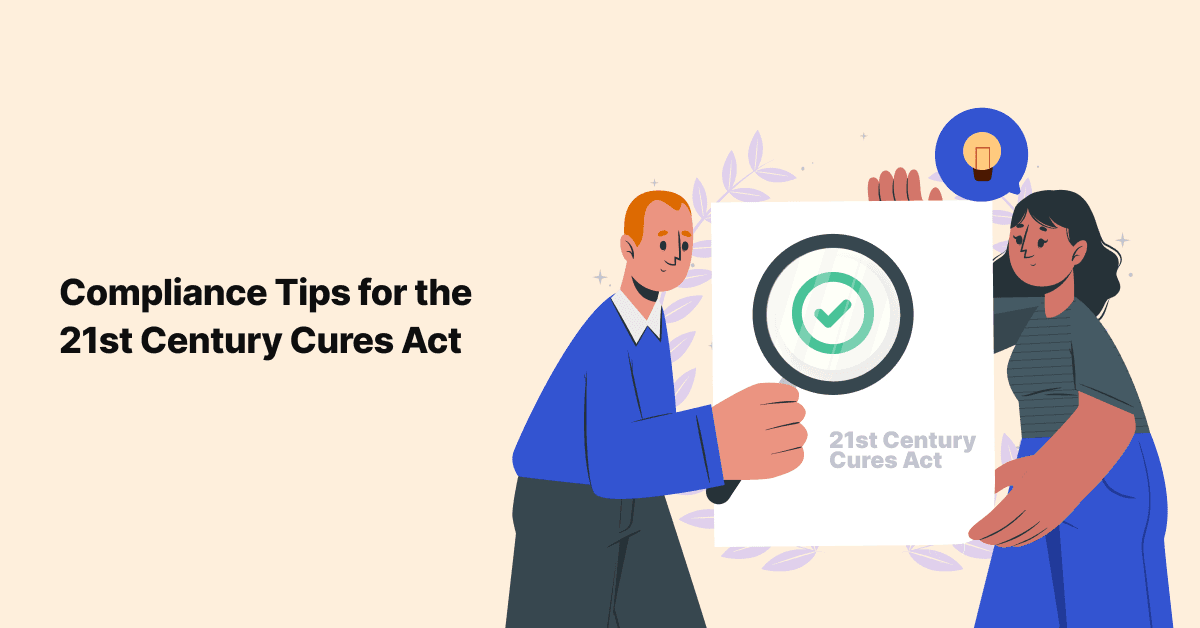
The 21st Century Cures Act Compliance Tips for Providers and Payers
The 21st Century Cures Act (“Cures Act”) was signed into law in December of 2016 with authorized funding of …
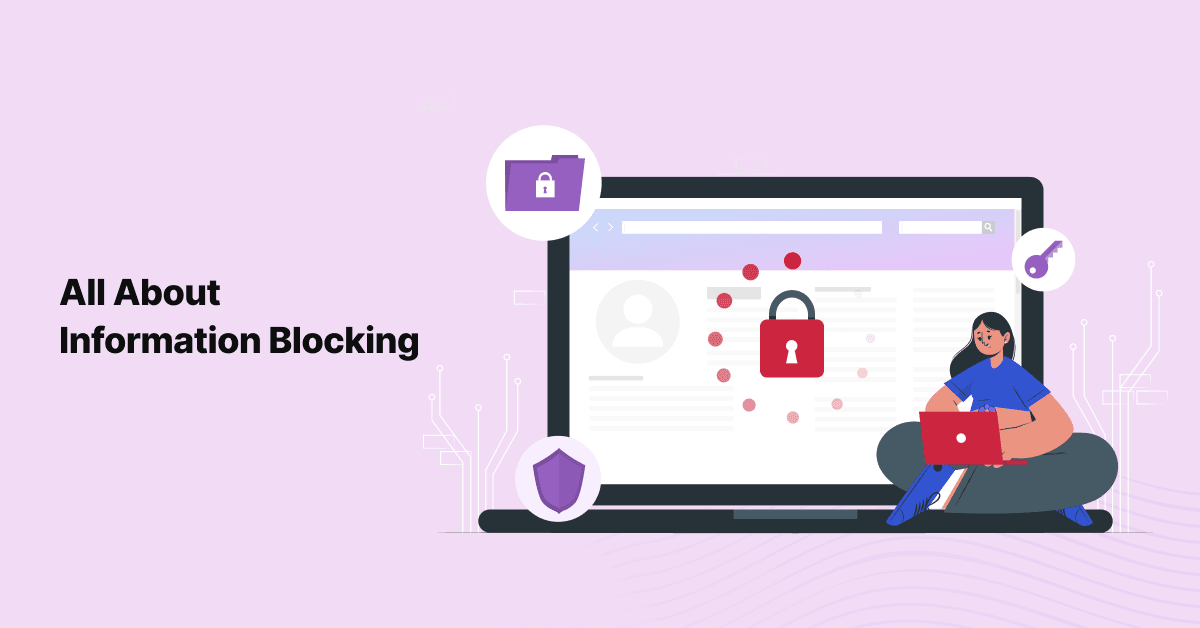
Information blocking was brought into action to ensure the patient’s right to access their health data was valued and upheld; however, things haven’t been going as expected. There has been high dissatisfaction from the patient end with how providers have been handling the EHI access requests. Information blocking refers to any restraint placed on accessing or exchanging patients’ Electronic Health Information. Find out more about Information Blocking through this article.
The healthcare industry has gone through a radical change by enabling patients to have control over their health data. The information blocking rule was brought into place to corroborate the meaningful use of health data to ensure secure data sharing.
The Final Rule or the Information Blocking Rule 2020, published by the U.S. Office of the National Coordinator for Health Information Technology (ONC), defines information blocking as a practice that interferes with, prevents, or materially discourages access, exchange, or use of electronic health information. In other words, 21st Century Cures Act states that Information Blocking can be anything that unnaturally prevents access to patient health information.
To put it in simpler words, information blocking refers to an act that prevents or interferes with access, use, or exchange of Electronic Health Information. This rule was brought into place to ensure the protection and fair use of patients’ health data. The rule also comes with its own set of exceptions and penalties for non-compliance.
The following practices could amount to Information Blocking:
Three categories of “actors” fall under the purview of the regulations of the information blocking section of the ONC Cures Act Final Rule, and they are:
The following actions are considered to be exceptions to the Information Blocking Rule:
While information blocking was brought into the Healthcare industry to protect the health information shared electronically, several instances have caused the need to file complaints against information blocking.
As per data published by the ONC at the end of April 2022, 393 information blocking portal submissions were received, out of which 29 did not appear to be claims of potential information blocking. Patients or their representatives filed as much as 66.3% of the complaints.
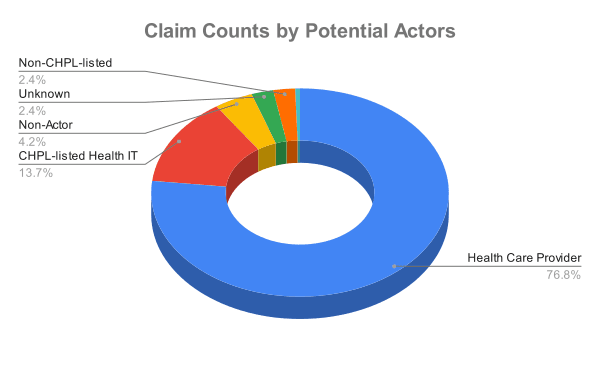
“Something that requires attention is that 76.8% (more than three-fourths) of all information blocking complaints were filed against provider organizations.”
CHPL-listed Health IT Vendors (13.7%) and Non-Actors (4.2%) were a distant second and third in the list of potential actors against whom the complaints were filed.
Claimants from the patient end have raised concerns about being charged excessive fees to access the electronically held health data.
Has action been taken to address the complaints against the potential actors?
The Office of the Inspector General (OIG) is not yet ready to impose any action against the potential actors as it has not finalized the rules that would allow it to do so. Although the proposed rule was published in April 2020, the final rule is yet to see the light of the day. The final rule is expected to define the nature and quantum of penalties that could be imposed on the potential actors.
Something that isn’t entirely clear is if the final rules would apply to the information blocking incidents that occurred before publishing the final rules. However, this clearly is a wake-up call for provider organizations.
To better comply with the information blocking rule and to aid the response to requests of access, use, and exchange of EHI, the provider organization must ensure the following:
One action that keeps the provider organization prepared for the future is to watch out for the newer amendments made to the Act. This helps the organization monitor its progress and meet the set standards.
When dealing with information blocking, it is good to remember that more documentation is better than less documentation!
Join over 3,200 subscribers and keep up-to-date with the latest innovations & best practices in Healthcare IT.

The 21st Century Cures Act (“Cures Act”) was signed into law in December of 2016 with authorized funding of …
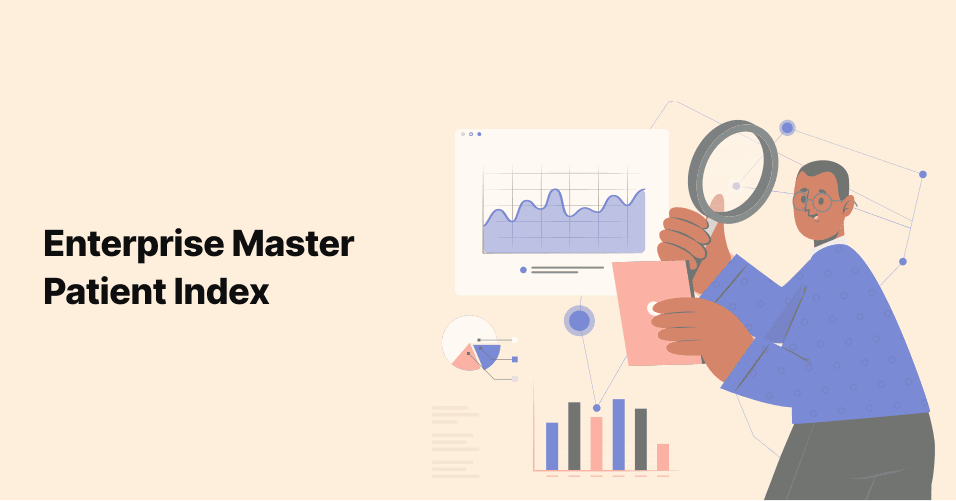
Duplicate, inconsistent, and incomplete patient records put patient lives at risk and in addition, your …
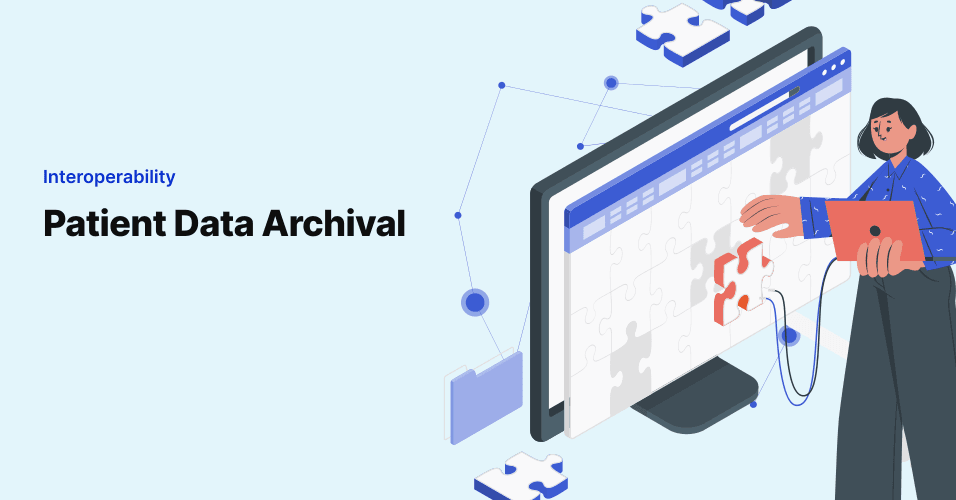
Currently, we are experiencing the important need to fight and reduce the spread of Covid-19. Appropriate …